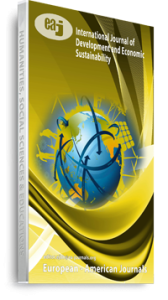This study investigated the relationship between insurance sector development and economic growth in Nigeria using data from 2001 to 2017. The study adopted gross domestic product (GDP) as proxy for economic growth and the response variable, while total insurance investment (INV), total insurance premium (PRE), and total insurance claims (CLA) were used as proxies for insurance sector development and the predictive variables. Secondary time series data for the variables were sourced from annual reports of Central Bank of Nigeria (CBN) Statistical Bulletins and the Nigerian Insurance Digest covering the period 2001 to 2017. The study employed descriptive statistics and multiple regression technique based on the E-views 9.0 software as methods of data analysis. The empirical results showed that total insurance investment, total insurance premium and total insurance claims had positive effect on gross domestic product, proxy for economic growth (total insurance investment and total insurance premium were significant at 5% level, while total insurance claims, at 19% level, was not significant). This study has established that the insurance sector development contributed meaningfully to economic growth in Nigeria. Based on the findings this study recommended that insurance policies be made mandatory for individuals and business organizations to encourage and protect investors as well as ensure sustained economic growth. Besides, the regulatory authorities should put in place policies to enforce transparent and efficient management of funds by insurers; while the latter should diversify their portfolio of investments to boost returns and their ability in claims payment.
Keywords: Development, claims, economic growth; insurance; investment; premium

